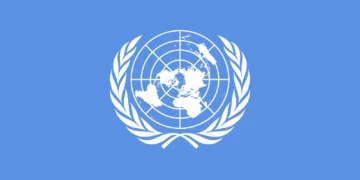Recently, the United Nations Educational Fund (UNICEF) stated that more than 95 million Nigerians lack access to sanitation services.
The statistics revealed by UNICEF paint a deeply troubling picture of a country grappling with a fundamental public health challenge: the pervasive practice of open defecation and the widespread lack of basic sanitation services.
The numbers are both shocking and heartbreaking. Even more alarming, 48 million Nigerians, including 18 million children, are forced to practice open defecation. This is not just a statistic; it is a human rights and public health catastrophe that undermines the very foundations of community well-being, education, and economic progress.
The scale of this crisis extends far beyond individual inconvenience. Our schools and healthcare facilities—the very institutions meant to nurture and protect our citizens—are woefully under-equipped. Approximately 91,000 schools and 27,600 healthcare facilities lack basic sanitation services. This means children are learning, and patients are receiving care, in environments that are fundamentally unhygienic and potentially dangerous.
Markets and motor parks fare no better, with 80% lacking access to basic sanitation. These are the spaces where commerce thrives, where daily economic interactions occur, yet they are plagued by the absence of the most basic human dignity: a clean, safe place to relieve oneself.
The financial dimension of this crisis is equally distressing. The annual funding required to address open defecation is estimated at approximately 168.75 billion naira. Yet, between 2018 and 2022, only 15 billion naira was invested—a mere fraction of what is needed. This chronic underfunding reveals a systemic neglect that perpetuates a cycle of poor health, reduced productivity, and diminished quality of life.
Vice President Kashim Shettima has rightly framed this as more than just a sanitation issue. The Vice President also implored the governors of the 36 states of the federation to double their efforts in the ongoing campaign to ensure Nigeria is open defecation-free within the next five years.
According to him, the importance of the campaign cannot be overemphasised, as every step taken towards ending open defecation will improve health, boost productivity, and enhance the dignity and safety of Nigerians.
No doubt, this is a multi-dimensional challenge that impacts health, productivity, and human dignity. The economic potential is significant: proper sanitation infrastructure can create jobs, provide alternative energy sources, and produce biological fertilisers. It is an opportunity for innovation and economic transformation.
The government’s commitment, as articulated through the Clean Nigeria: Use the Toilet campaign, is a promising start. The goal of achieving an open defecation-free Nigeria by 2030 is ambitious but necessary.
Currently, only 17% of local government areas have achieved this status, with just 9% success in UNICEF-supported states. Federal commitment has noticeably declined since 2023, stalling critical initiatives.
In our view, governors must be mobilised to treat this as a priority. The campaign needs high-level political support, particularly at the sub-national level. Every level of government—federal, state, and local—must view sanitation as a critical investment in Nigeria’s future.
Sadly, open defecation compromises water sources, spreads diseases, and disproportionately affects women, girls, and vulnerable communities. It perpetuates a cycle of poor health that impedes educational attainment and economic opportunity.
UNICEF’s Rebecca Gabriel offers a beacon of hope, asserting that all Nigerian states could achieve open defecation-free status before the 2030 Sustainable Development Goals deadline. But this will require a collective effort. Governments, public-spirited individuals, civil society, and the private sector must collaborate with unprecedented urgency.
It is from this perspective that we posit the need for massive investment in sanitation infrastructure. Every school, healthcare facility, market, and public space must be equipped with clean, safe toilets. We need comprehensive public awareness campaigns that transform social norms and behaviors. We need robust monitoring and accountability mechanisms to ensure progress.
This is not just an infrastructure challenge; it is a moral imperative. Access to basic sanitation is a fundamental human right. It is about preserving human dignity, protecting public health, and creating environments where every Nigerian can thrive.
The upcoming years are crucial. With the target of ending open defecation by 2025, time is of the essence. Every day of delay represents continued suffering, increased health risks, and lost potential for millions of Nigerians.
The toilet is not just a place of personal necessity. As this year’s World Toilet Day theme suggests, it can be “a place for peace”—a symbol of dignity, health, and human potential. Let us work together to make this vision a reality for every Nigerian.





